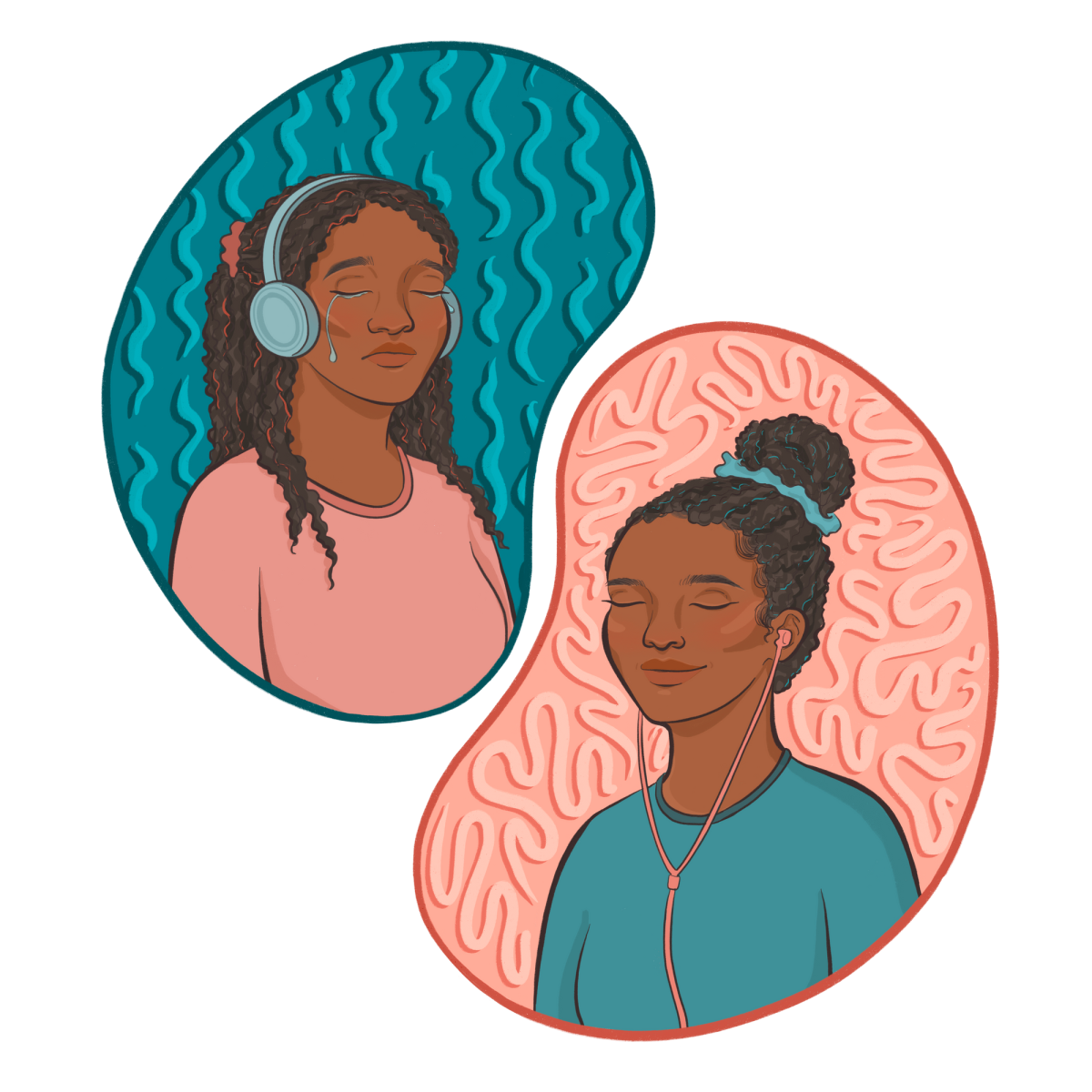Many teenagers love listening to music. It’s a known fact. For decades, many teenagers have been ridiculed and stereotyped just because they love to listen to music. Luckily, over the decades, the shame for listening to music has lessened, and music culture has grown larger than ever before. Maybe even a little too much. Many students are listening to music in places they shouldn’t necessarily be listening to music in, like school. Many teachers complain of distraction in students, as they are tuned out and listening to music using earbuds or headphones, especially noise-canceling headphones. Many teachers worry that students are not learning, but that is not always the case.
Studies have shown that students spend an average of 2.5 hours listening to music a day, which some may think is bad, but it’s the complete opposite. According to Pfizer, the limbic system is in control of triggering emotions by sending blood flow to certain parts of the brain that control those emotions. The limbic system is triggered by the sound of the music, and it sends the message to the part of the brain that controls the emotion that they are feeling. Also, many studies have shown that music may lessen depression and anxiety.
As you can see, music is a great outlet for people to feel emotions clearer and to improve their mood. So, using that information, I think it is safe to say that listening to music in class can definitely be a good thing, and can improve your mood, which in turn can improve your schoolwork.







